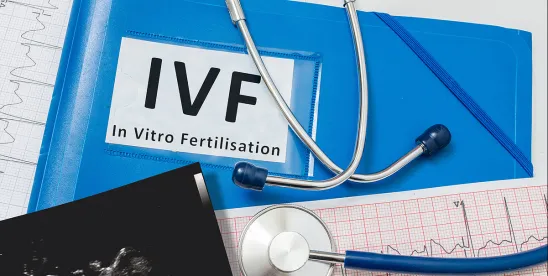On 16 February 2024, the Supreme Court of Alabama published its opinion, “Supreme Court of Alabama, SC-2022-0515,”1 regarding whether embryos located outside the biological uterus are considered unborn children pursuant to Alabama’s Wrongful Death of a Minor Act2 (the Act). The court held that the Act applies to all born and unborn children regardless of their location, which includes embryos created through in vitro fertilization (IVF). Therefore, under the Act, the court concluded a civil wrongful death lawsuit was appropriate against an IVF clinic whose employee’s actions resulted in the destruction of plaintiff’s embryos.3
The Alabama court ruling is the first of its kind, but already is having a significant impact nationwide. For example, several states have been considering laws similar to Alabama’s that define life as beginning at fertilization and would permit wrongful death claims. Since the Alabama court ruling, however, some states are reconsidering the impact of these proposed laws, and in at least one state, the proposed legislation has died.4 Additionally, IVF facilities and providers in Alabama are concerned about their increased exposure to civil liability as a result of this ruling, including increased rates for malpractice insurance. This increased exposure and higher costs could prevent some IVF providers from continuing to practice and raise prices precipitously for those who do, possibly resulting in fewer people being able to afford IVF.5 IVF clinics within Alabama also are weighing whether the ruling will require them to change their standard practices, which is to produce multiple embryos and freeze them. This would limit the fertilization of eggs and require additional treatments and surgeries if an initial IVF round fails. Additionally, patients are uncertain what the ruling means for them if they have multiple embryos that are not implanted.6
Some Alabama patients are choosing to transfer their embryos and continue their IVF treatment outside the state; however, it is unclear whether transporting embryos outside of Alabama, where they may ultimately be destroyed, will open healthcare providers and patients to litigation. These uncertainties may deter specialists and fertility service providers from providing care to patients from Alabama, particularly where the Alabama attorney general has previously indicated he would prosecute groups assisting women traveling out of the state for abortions that are legal in those other states.7 While many states like Colorado have abortion shield laws, it is unclear whether the transport of frozen embryos was considered when these shield laws were enacted.8 Accordingly, a key legal issue for IVF providers outside of Alabama is whether accepting embryos from Alabama residents will expose their organizations to liability.
In the wake of the Alabama Supreme Court ruling, the Alabama legislature scrambled to pass legislation that would provide immunity to IVF treatment centers and IVF professionals (such as physicians). Senate Bill 159, which provides civil and criminal immunity to “persons providing goods and services related to” IVF, was enacted by the Alabama legislature and signed by Alabama’s governor 7 March 2024. The law includes an exception for intentional acts or omissions that do not “arise from” or “relate to” IVF services. Critics argue that the law does not address the central issue of whether embryos are children, and in creating a broad exception for professionals engaged in providing IVF services, it does not adequately protect the individuals whose embryos are destroyed.9 Additionally, the law does not address immunity for such individuals, leaving open many questions regarding the management of embryos, including: whether a release from both individuals involved in creating the embryos is required to transfer or relocate embryos, what to do in the event of divorce or dissolution of the relationship (in the event the individuals involved in creating the embryos were married or otherwise in a relationship at the time of creation), whether moving or transferring embryos raises liability issues for the entity moving or transferring the embryos, and whether parties seeking a requirement to implant embryos over discarding them will engage in forum shopping.
In light of the Alabama Supreme Court ruling, several US senators have taken steps to protect IVF and other assisted reproductive technology (ART) by introducing the Access to Family Building Act (the Family Act). The Family Act would establish a person’s statutory right to access ART services, such as IVF, without prohibition or unreasonable limitation or interference, and for healthcare providers to provide ART services. The Family Act would establish an individual’s statutory right regarding the use or disposition of their reproductive genetic materials, including gametes, and would permit a private right of action for individuals and providers in states that have limited access to ART. Additionally, the Family Act would allow the Department of Justice to pursue civil action against states, government officials, individuals, or entities that violate protections in the Family Act.10
1 LePage v. Ctr. for Reprod. Med., P.C., Nos. SC-2022-0515, SC-2022-0579, 2024 Ala. LEXIS 60, at *1 (Feb. 16, 2024).
2 Alabama Wrongful Death of a Minor Act, Ala. Code § 6-5-391 (1975).
3 LePage, 2024 Ala. LEXIS 60, at 3. The embryos were destroyed when an employee of the IVF clinic attempted to remove the plaintiff’s embryos from the IVF clinic’s cryo-preservation unit without proper protective gear. The employee burned himself, causing him to drop the embryos, resulting in their destruction.
4 See, e.g., S.B. 476, 2024 Leg., 96th Sess. (Fla. 2024)., H.B. 3549, 125th Gen. Assemb., Reg. Sess. (S.C. 2023), and H.B. 2181, 2024 Leg., 90th Sess. (Kan 2024); See also Adam Edleman, An uptick in state personhood bills fuels growing fears over IVF restrictions, NBC NEWS, (Feb. 23, 2024), https://www.nbcnews.com/politics/personhood-bills-ivf-restrictions-alabama-rcna140228.
5 Aria Bendix, Doctors and patients fearfully proceed with IVF after Alabama court rules embryos are children, NBC NEWS, (Feb. 20, 2024), https://www.nbcnews.com/health/health-news/ivf-doctors-patients-fearful-alabama-court-rules-embryos-are-children-rcna139636.
6 Id.
7 Celine Castronuovo, Alabama Ruling Fuels Fears of Embryo Transport Legal Battles, BLOOMBERG LAW, (Mar. 5, 2024) https://news.bloomberglaw.com/health-law-and-business/alabama-ruling-fuels-fears-of-embryo-transport-legal-battles.
8 Id.
9 S.B. 159, 2024 Leg., 2024 Gen. Assemb. Reg. Sess. (Ala. 2024).
10 Access to Family Building Act, S. 3612, 118th Cong. (2024); See also Press Release, Sheldon Whitehouse, Reed, Whitehouse Continue Pressing to Protect IVF Access After Alabama Supreme Court Ruling (Mar. 4, 2024) https://www.whitehouse.senate.gov/news/release/reed-whitehouse-continue-pressing-to-protect-ivf-access-after-alabama-supreme-court-ruling/#:~:text=The%20Access%20to%20Family%20Building,of%20the%20legislation%20last%20week.





 />i
/>i
